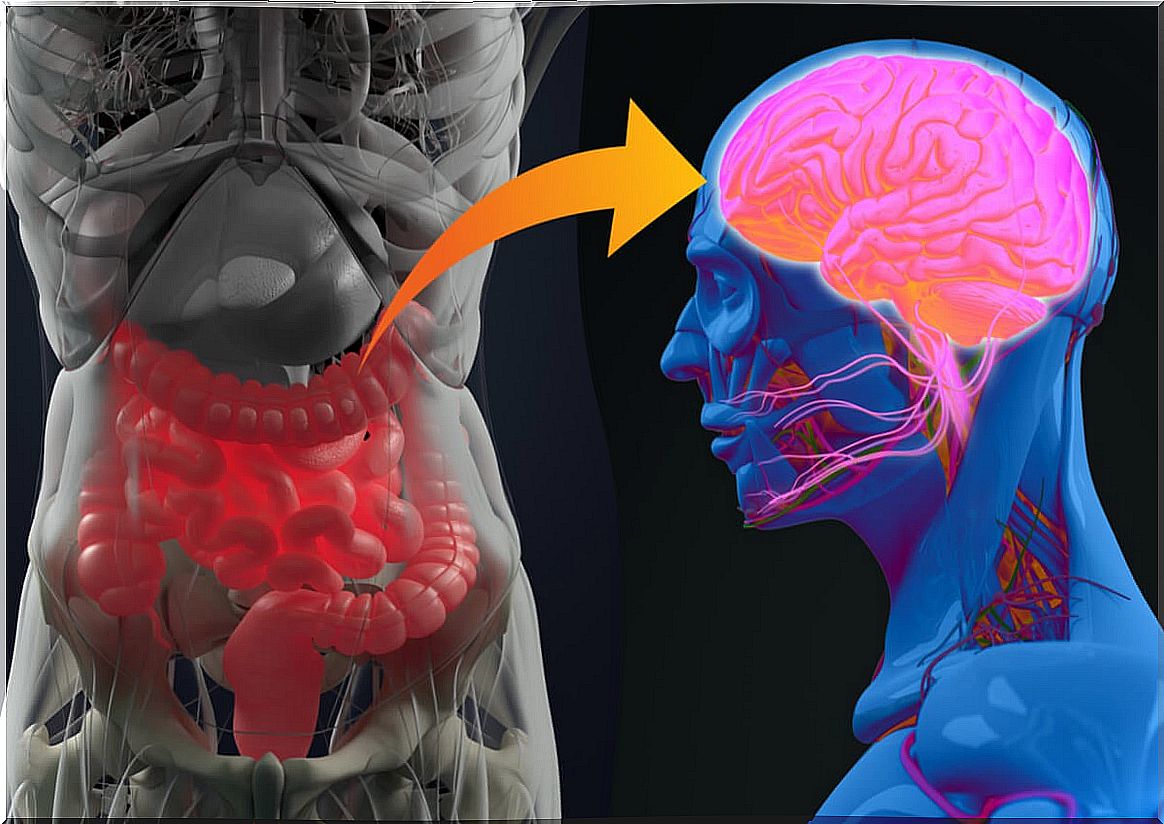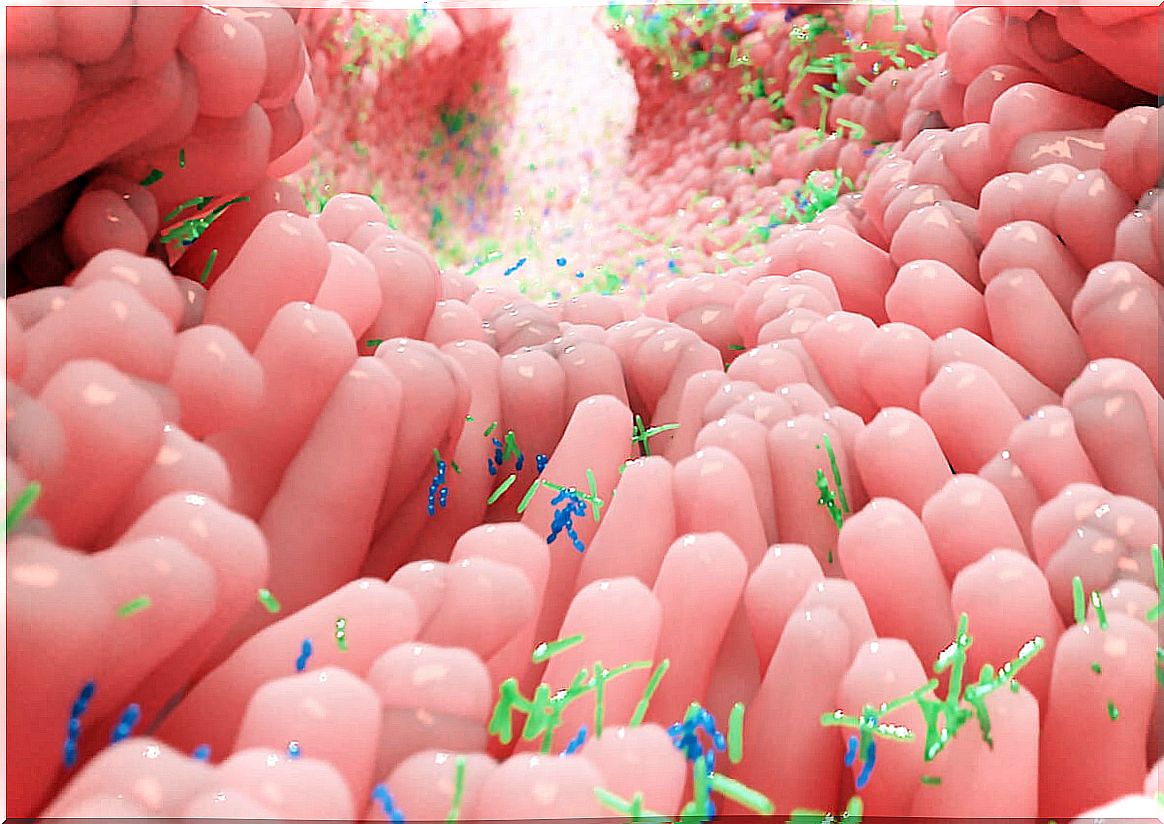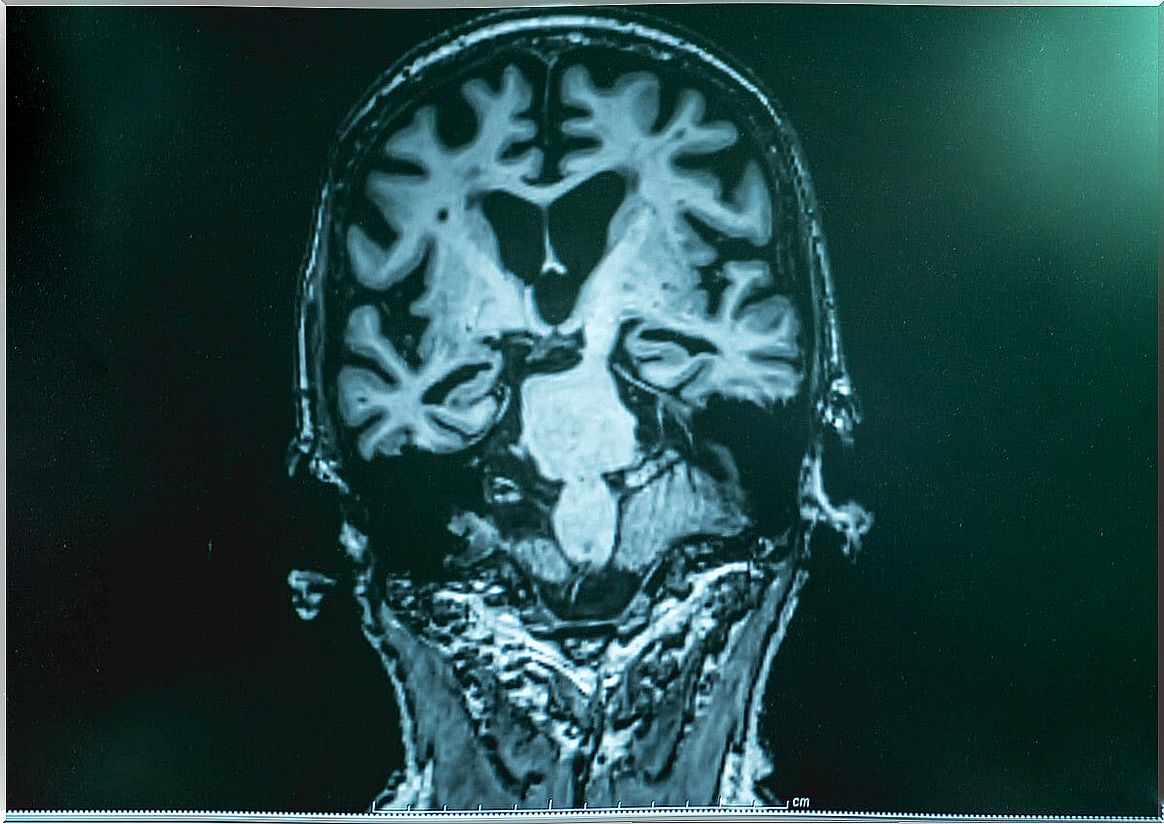Gut Microbiota And Alzheimer’s, How Are They Related?

To this day, and unfortunately, a cure for Alzheimer’s has not yet been found. There are therapies that can improve the progression of the disease, such as cognitive stimulation, and other more innovative ones such as virtual reality. But what if part of the solution was much more within our grasp? What if we could start treating and preventing Alzheimer’s from the gut, more specifically, from the gut microbiota?
It is estimated that between 60 and 70% of cases of dementia – now a major neurocognitive disorder – are due to Alzheimer’s disease. It is believed that there are around 48 million people in the world living with the disease. With these figures, all research is little and every finding, no matter how small, a thread to pull.
In this regard, we are going to delve into the concept of the intestinal microbiota and review the most recent research that relates dysbiosis, an alteration in the balance of the intestinal microbiota, with Alzheimer’s, both with the onset of the disease and with its evolution and prognosis.

Let’s go in parts: what is the intestinal microbiota?
We call the intestinal microbiota the set of living microorganisms that live in the organism and that coexist symbiotically with it, or in this case, with our intestine. This symbiotic coexistence (balance) is essential for health.
The microbiota of the intestine, specifically that of the large intestine, is one of the most populated on the planet : it is made up of about 100 billion microorganisms of about 1000 different species, the equivalent of between one and a half kilo and two kilos!
The intestinal microbiota is unique to each individual. We could say that it is almost like our second fingerprint, since only a small part of the species are common to different subjects (only 60 species of the more than 1000 are present in half of the population of the same geographical area).
The development of the microbiota begins after birth and is highly influenced by external factors, such as the way we feed ourselves, stress, the use of drugs … Although the microbiota is subject to normal hormonal variations, these variations are more pronounced in the elderly , a period in which an impoverishment and imbalance of the intestinal microbiota are observed.
What are the functions of the microbiota?
Due to its complexity and its importance for the proper functioning of the body, the microbiota has come to be considered as one more functional organ of the human body. Among its functions we must highlight the following:
- It exerts essential metabolic functions : it favors digestion and the absorption of nutrients, and it participates in the synthesis of metabolites (some fatty acids and some vitamins).
- It has a barrier function, which allows it to act as a defense against pathogens, such as toxins or microbes.
- It acts as a defense, since it favors the maturation of the intestinal immune system. About 70% of our immune cells are found in our intestines.
- It intervenes in the maturation of the digestive tract, maintains the intestinal mucosa and the enzymatic activity of the mucosa.
Origin of Alzheimer’s: does the intestinal microbiota have something to do with it?
The origin and cause of Alzheimer’s disease are still a mystery. In fact, the diagnosis can only be confirmed postmortem . In life, the diagnosis remains “probable or possible Alzheimer’s disease.” Therefore, research to determine the cause of this disease is very much alive.
Recent research and findings include that of a group of Chinese researchers, who proposed a possible link between Alzheimer’s disease. They studied the composition of the gut microbiota of healthy mice and genetically modified mice to develop the typical symptoms of Alzheimer’s, finding that there were large differences between the two.
Stool samples were taken from both groups of mice at different ages (1, 3, 5-6 and 8-12 months). This made it possible to study the diversity and abundance of bacteria in the intestinal microbiota.
Main and promising findings
It was found that the composition of the intestinal microbiota changed as a function of age in all animals. In addition, other types of differences were observed between both groups. The mice “with Alzheimer’s”, from the age of 5-6, began to present dysbiosis. Specifically, they had a low level in the brain of butyrate, a short-chain fatty acid (SCFA) with probiotic effects that seems to help protect neurons against inflammatory processes, with its corresponding correlate in stool measurements.
The researchers also found that mice “with Alzheimer’s”, from the age of 5 months, had amyloid deposits in the intestine. On the other hand, structural alterations typical of the senile plaques present in Alzheimer’s, shorter and more irregular villi in the intestine and mitochondrial degeneration were found.
As the researchers explain, these amyloid deposits, together with the structural alterations found, facilitate the imbalance in the intestinal microbiota (dysbiosis) and therefore could be involved in butyrate deficiency, which could contribute to increasing the cognitive symptoms of the disease of Alzheimer’s.

The gut microbiota opens a door of hope
As stated by Dr. Frida Fåk Hållenius, one of the authors of the study, these results mainly mean that research can be started on new ways to prevent Alzheimer’s disease, delay its onset and promote better progression.
In fact, a clinical trial was recently conducted whose results showed small improvements in Alzheimer’s patients treated with probiotics for 12 weeks. After this period, a significant – albeit slight – improvement in scores on the MMSE, a screening test to measure cognitive impairment , could be observed .
This line of investigation is the order of the day, so it is expected that it will continue to advance. All progress is important, since it brings us closer to finding the origin and treatment of one of this “growing epidemic” that kills so many people a year and that generates the greatest economic impact.









